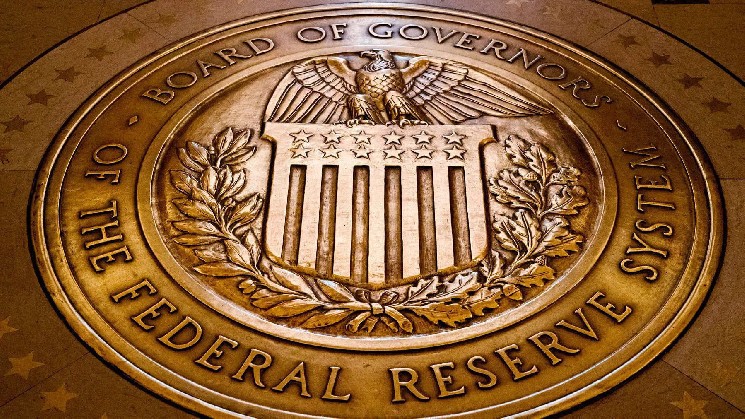Federal Reserve to Host Landmark Conference on Cryptocurrency Payment Innovations
Fed Takes Center Stage in Digital Finance Evolution with October 21 Event
The U.S. Federal Reserve is stepping boldly into the cryptocurrency arena with a high-profile conference dedicated to payment innovations in the digital asset space. On October 21, the central bank will convene influential voices from across the financial ecosystem to examine how cryptocurrencies are reshaping the payments landscape. This unprecedented gathering signals growing institutional recognition of blockchain technology’s transformative potential in global finance.
The Payment Innovation Conference represents a watershed moment in the relationship between traditional financial authorities and the emerging cryptocurrency sector. By bringing together regulators, financial institutions, and technology experts under one roof, the Fed aims to foster meaningful dialogue about the future of money in an increasingly digital world. The conference will provide a neutral forum for stakeholders to discuss both the opportunities and challenges presented by crypto-based payment systems as they continue to gain mainstream adoption.
Digital Assets Take Center Stage: Bitcoin, Stablecoins, and Blockchain Payment Systems
The conference agenda reveals a comprehensive examination of the cryptocurrency ecosystem, with dedicated sessions exploring Bitcoin (BTC), stablecoins, and various blockchain-supported payment infrastructures. This deliberate focus underscores the Federal Reserve’s acknowledgment that digital assets have evolved beyond speculative investments to become potentially significant components of the global payments infrastructure.
As cryptocurrencies increasingly intersect with traditional finance, understanding their implications has become essential for monetary authorities worldwide. The Fed’s willingness to engage deeply with these topics signals a maturing approach to regulation and oversight in the crypto space. By addressing both the innovations and challenges in digital payments, the conference aims to highlight the growing importance of cryptocurrencies in reshaping how value is transferred in the modern economy.
Industry Leaders Converge: A Meeting of Traditional Finance and Crypto Pioneers
The Federal Reserve has assembled an impressive roster of speakers representing both traditional financial powerhouses and crypto industry innovators. The conference will be livestreamed on federalreserve.gov and YouTube, making these important discussions accessible to global audiences interested in the evolution of payment systems.
Opening with remarks from Federal Reserve Board member Christopher J. Waller, the event will immediately establish high-level engagement from the central bank. The first session, “Bridging Traditional Finance and the Digital Asset Ecosystem,” sets the tone for the day’s discussions by directly addressing the growing convergence of conventional and crypto finance. Moderated by Rebecca Rettig of Jito Labs, this roundtable features prominent voices including Chainlink CEO Sergey Nazarov, Lead Bank CEO Jackie Reses, Fireblocks CEO Michael Shaulov, and a senior official from BNY Mellon, Jennifer Barker. This diverse panel represents the key stakeholders working at the intersection of traditional banking and blockchain innovation.
Stablecoins and Use Cases: Exploring the Future of Digital Dollar Alternatives
The second session delves into one of the most promising and controversial areas of cryptocurrency development: stablecoins. Titled “Stablecoin Use Cases and Business Models” and moderated by Kyle Samani of Multicoin Capital, this discussion brings together leaders who are actively developing and implementing stablecoin technology.
Participants include Charles Cascarilla, CEO of regulated stablecoin issuer Paxos; Heath Tarbert, President of Circle, the company behind USDC; Tim Spence, CEO of Fifth Third Bank; and Fernando Terres, CEO of Dollar App. This panel represents a balanced mix of crypto-native companies and traditional financial institutions exploring stablecoin implementation. The session will likely address critical questions about regulatory compliance, consumer protection, and the potential for stablecoins to enhance payment efficiency across borders while maintaining stability—a key concern for central banks monitoring these developments.
Beyond Cryptocurrency: AI and Tokenization Reshaping Payment Infrastructure
Recognizing that cryptocurrency innovation exists within a broader technological revolution, the conference’s third session explores “Artificial Intelligence in Payments.” Matt Marcus from Modern Treasury will moderate this forward-looking discussion featuring an impressive panel: Alesia Haas, CFO of Coinbase; renowned investor Cathie Wood, CEO of Ark Invest; Emily Sands from payment processor Stripe; and James Tromans, who leads Google Cloud’s Web3 and Digital Assets initiatives.
The inclusion of artificial intelligence highlights the Federal Reserve’s comprehensive approach to understanding how multiple emerging technologies might converge to transform financial services. This session will likely explore how AI can enhance security, reduce fraud, optimize transaction routing, and potentially work alongside blockchain systems to create more intelligent payment networks.
Institutional Adoption: Wall Street Giants Embrace Tokenization
The conference culminates with perhaps its most significant session for traditional finance: “Tokenized Products.” Moderated by Colleen Sullivan of Brevan Howard Digital, this panel features heavyweight institutional players who are actively implementing blockchain technology. Participants include Rob Goldstein, COO of BlackRock, the world’s largest asset manager; Jenny Johnson, CEO of Franklin Templeton; Don Wilson, CEO of trading firm DRW; and Kara Kennedy, co-chair of JPMorgan’s blockchain unit, Kinexys.
This final discussion represents perhaps the most concrete evidence of crypto’s maturation and integration with mainstream finance. BlackRock’s recent entrance into the Bitcoin ETF market and JPMorgan’s development of its own blockchain settlement system demonstrate that tokenization has moved beyond theoretical discussions to practical implementation at the highest levels of global finance. The panel will likely address how traditional financial instruments can be tokenized to improve efficiency, reduce settlement times, enhance transparency, and potentially create new market opportunities.
The Federal Reserve’s Payment Innovation Conference marks a significant milestone in the relationship between central banking and cryptocurrency innovation. By creating a platform for substantive dialogue between traditional financial institutions and digital asset pioneers, the Fed demonstrates its commitment to understanding—rather than simply reacting to—the transformative potential of blockchain technology in the payments landscape. As these discussions unfold, they may well shape the regulatory approach and institutional adoption of cryptocurrencies for years to come, potentially influencing how the world’s most powerful central bank views the future of money itself.


